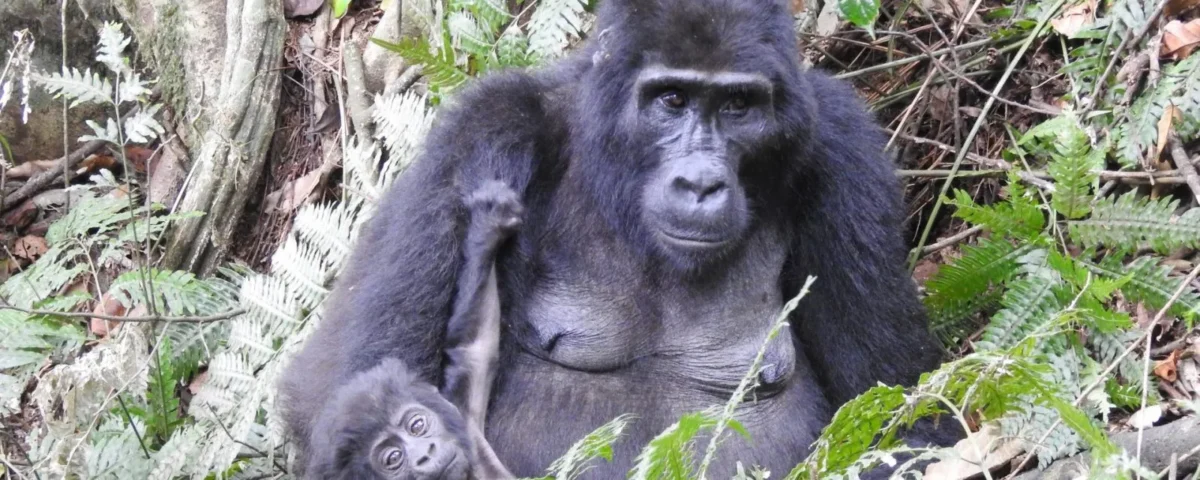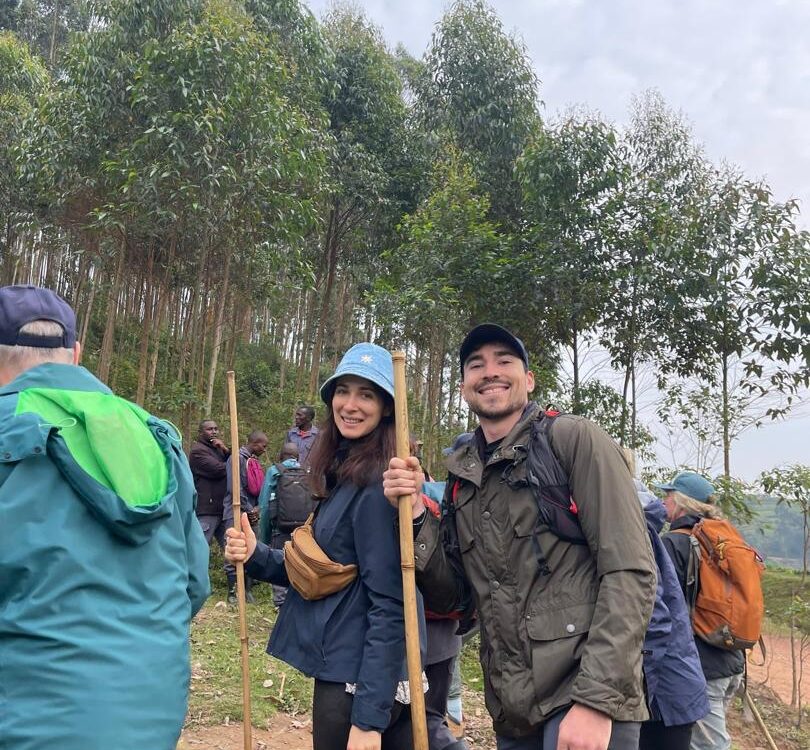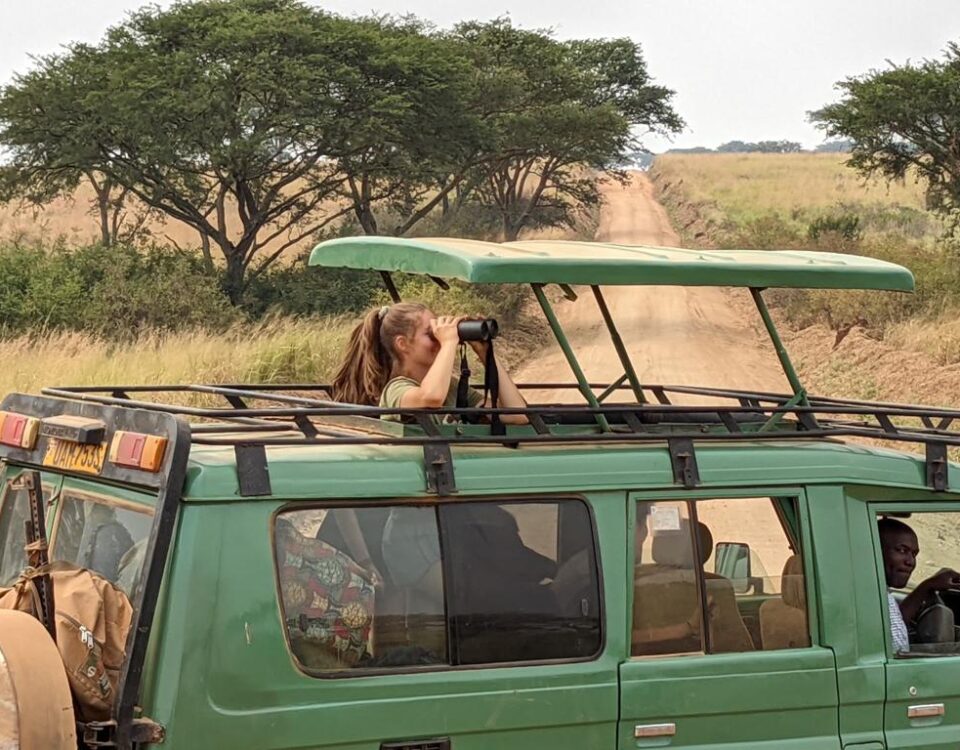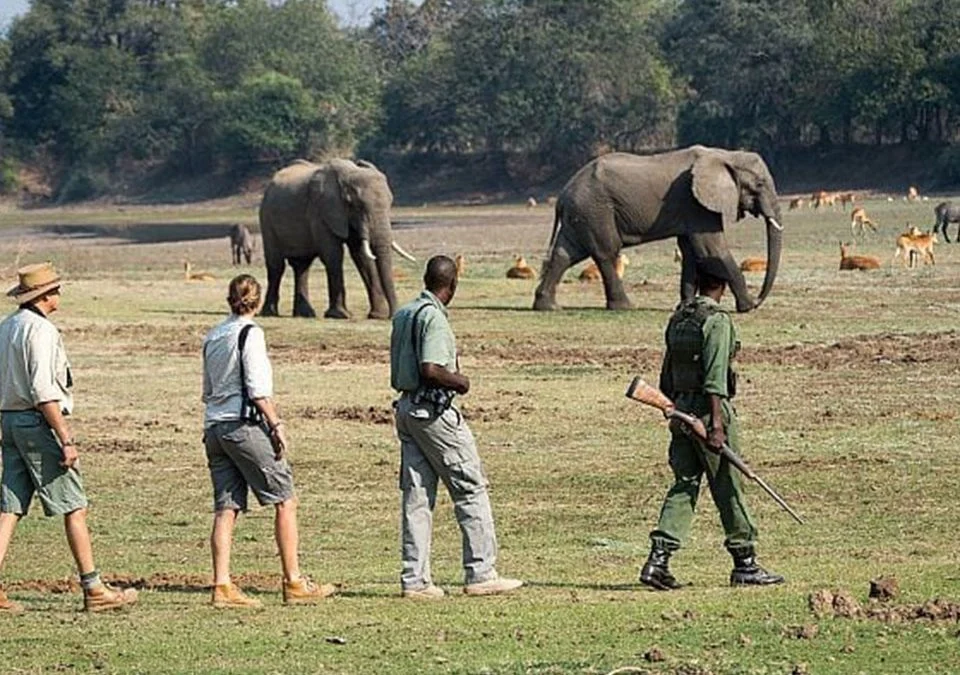
Mountain Climbing and Hiking in Uganda
June 3, 2025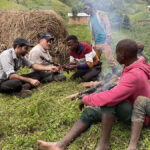
Cultural Activities Around Kibale National Park
June 4, 2025Most Asked Questions About Gorilla Habituation in Uganda
When planning a wildlife safari or a specialized Uganda gorilla trekking adventure, one of the most intriguing and less commonly understood activities is gorilla habituation. This unique experience offers travelers a rare and intimate opportunity to observe mountain gorillas in a way that goes beyond the traditional one-hour gorilla trekking safari encounter. Tubale Safaris brings you this comprehensive guide answering the most asked questions about gorilla habituation in Uganda, helping you understand this extraordinary adventure, how it differs from standard gorilla trekking, and why it is considered one of the most immersive wildlife encounters in Africa.
Gorilla habituation refers to the gradual process of accustoming wild mountain gorillas to human presence, allowing researchers and eventually tourists to observe these magnificent creatures closely without causing stress or disturbance. This method was pioneered by Dian Fossey, the renowned American primatologist, who revolutionized mountain gorilla conservation through her hands-on research and habituation techniques. Today, Uganda Wildlife Authority has opened gorilla habituation experiences to tourists, making it an exclusive yet growing part of Uganda safari itineraries.
Unlike standard gorilla tours where visitors spend about one hour observing fully habituated gorillas, the habituation experience offers a prolonged interaction—up to four hours—with gorillas that are still in the process of becoming accustomed to humans. This allows for deeper observation of their natural behaviors, social dynamics, and daily routines. Tubale Safaris encourages couples and solo travelers interested in an unforgettable gorilla trekking safaris experience to consider habituation, which also aligns well with combining other adventures like chimpanzee tracking or a Rwanda safari.
Uganda Gorilla Trekking Safari Packages and Tours
- 3 Days Gorilla Habituation Safari
- 3 Days Gorilla Trekking Tour
- 3 Days Uganda Fly to Bwindi
- 5 Days Wildlife & Gorilla Safari
- 7 Days Uganda Gorilla Safari
- 8-Day Gorilla & Wildlife Tour
- 9 Days Best of Uganda Safari
- 5 Days Gorilla & Rafting Safari Uganda
- 6 Days Primates Safari Tour
- 10 Days Birding Tour Uganda
- 10 Days Uganda Wildlife Tour
- 12 Days Uganda Wildlife Tour
- 13 Days Pearl of Africa Tour
- 15 Days Uganda Safari
- 18 Days Uganda Safari
- 21 Days Birding Uganda Safari
- 24 Days Best of Uganda Tour
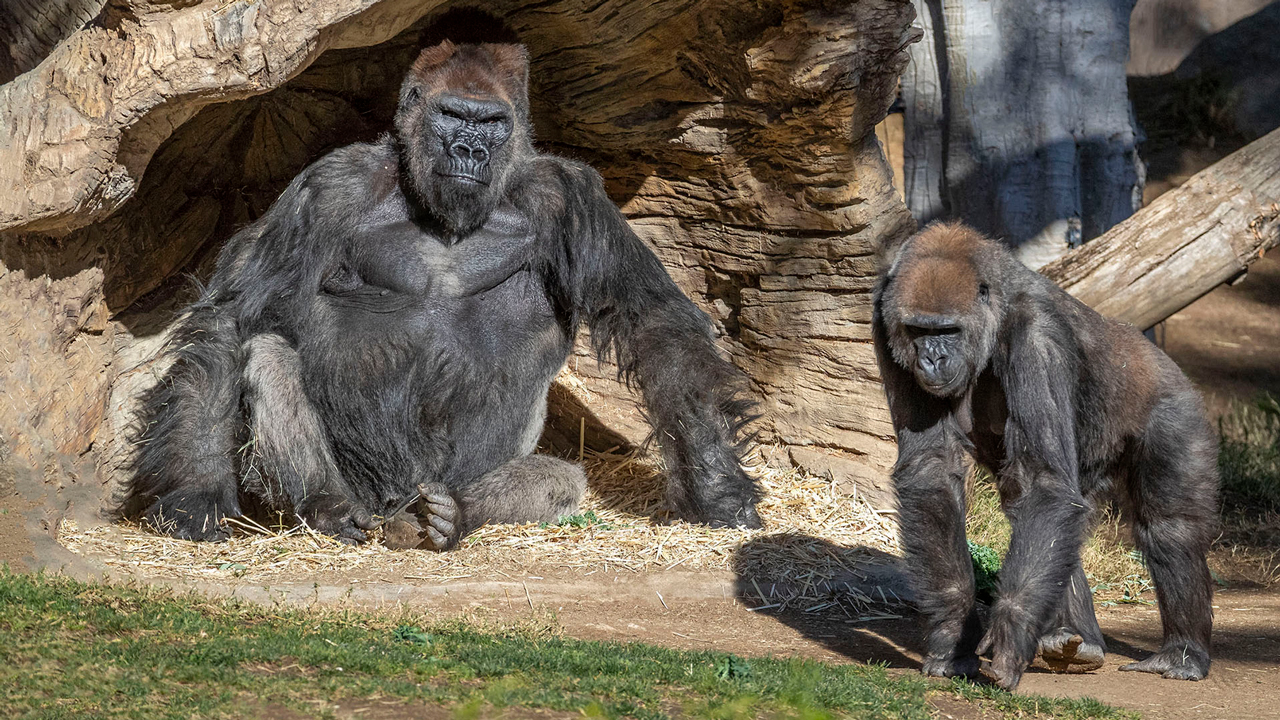
Most Asked Questions About Gorilla Habituation in Uganda
What is Gorilla Habituation and How Does it Differ from Gorilla Trekking?
Gorilla habituation is a conservation technique aimed at acclimating wild mountain gorillas to the presence of humans over time. The process begins with researchers spending extensive time with unhabituated gorillas to minimize their fear and allow them to continue their natural behaviors in the presence of humans. The ultimate goal is to open the possibility for eco-tourism without negatively impacting gorilla welfare or behavior.
In the context of tourism, habituation provides an extended window of time to watch gorillas that are only partially accustomed to humans, unlike the fully habituated groups encountered during regular gorilla trekking safaris. On a typical gorilla trekking permit, visitors spend exactly one hour observing gorillas, a duration established to minimize stress on these endangered animals. With gorilla habituation, visitors often wake early (usually around 7:30 AM) to track gorillas from their nests as they start their day. Tourists then spend up to four hours with the group alongside researchers, gaining an in-depth view of the gorillas’ behaviors, feeding habits, interactions, and movement.
This longer and more immersive encounter makes gorilla habituation safaris ideal for travelers who want a deeper connection and understanding of gorilla ecology. However, it requires a higher level of physical fitness because the trek is usually longer and more unpredictable as the gorillas have not yet become fully accustomed to human presence.
For travelers seeking to enrich their Uganda gorilla trekking adventure, combining habituation with other experiences such as chimpanzee tracking in Kibale Forest or a scenic Rwanda tour with gorilla trekking Rwanda creates a well-rounded itinerary that balances primate encounters with stunning landscapes and cultural experiences.
How Does the Gorilla Habituation Experience Work? What Should You Expect?
The gorilla habituation experience is a unique wildlife adventure that begins very early in the morning. After a briefing by expert Uganda Wildlife Authority rangers and researchers, participants start tracking the gorillas from their nesting sites in the forest. Unlike the more predictable routes of fully habituated groups, habituation requires patience and physical endurance as the gorillas’ movements are less predictable.
During this four-hour session, tourists join researchers who meticulously observe and record gorilla behavior. This extended time allows for an intimate appreciation of the gorillas’ daily activities, such as feeding, playing, grooming, and caring for their young. Because the gorillas are still adapting to human presence, you can witness a wider range of natural behaviors that are sometimes not seen in fully habituated groups.
Participants should prepare for a physically demanding trek, often covering challenging terrain through dense forest undergrowth and steep hillsides. Comfortable trekking gear, sturdy walking shoes, insect repellent, and a good level of fitness are essential. Tubale Safaris ensures that travelers receive thorough pre-trek briefings, transportation, and professional guides to facilitate a safe and enjoyable experience.
Moreover, the habituation experience is strictly regulated to protect the gorillas’ welfare. Only a limited number of permits are issued daily to minimize human impact. This exclusivity enhances the intimate and special nature of the activity, often making it a highlight of any Uganda safari or combined Rwanda safari itinerary.
Why is Gorilla Habituation Important for Conservation and Sustainable Tourism?
The practice of gorilla habituation plays a crucial role in both conservation and sustainable tourism efforts in Uganda and the greater Virunga region. By gradually accustoming gorillas to human presence, researchers can gather invaluable data on gorilla health, behavior, and social structures, which inform conservation strategies designed to protect this critically endangered species.
For tourists, participating in a gorilla habituation safari directly supports conservation efforts. The fees collected from habituation permits are significantly higher than regular trekking permits, providing essential funding for park management, anti-poaching patrols, community development, and research projects. Tubale Safaris proudly partners with Uganda Wildlife Authority to promote responsible tourism that benefits both wildlife and local communities.
Furthermore, habituation enhances sustainable tourism by promoting respectful wildlife encounters that do not stress or disrupt gorilla families. It educates visitors about the challenges mountain gorillas face from habitat loss, poaching, and disease, encouraging advocacy and support for their preservation. By fostering a close connection with nature through habituation, honeymooners and all travelers leave with a lasting appreciation of conservation efforts.
When combined with cultural tours that introduce visitors to the indigenous Batwa communities or local farming villages, habituation-based safaris become a comprehensive experience that highlights the link between people, wildlife, and environment.
Can Gorilla Habituation Be Combined with Other Safari Activities in Uganda and Rwanda?
One of the most attractive features of the best activities to do for honeymoon in Uganda is the flexibility to combine gorilla habituation with other unforgettable safari experiences, creating a well-rounded and deeply fulfilling itinerary. Tubale Safaris specializes in custom-tailoring itineraries that include both primate encounters and broader wildlife and cultural adventures.
A popular combination starts with the intensive gorilla habituation experience in Bwindi Impenetrable Forest or Mgahinga Gorilla National Park, followed by chimpanzee tracking in Kibale Forest, renowned for its rich primate diversity. This offers travelers an extraordinary chance to compare the behaviors of two closely related species within Uganda’s lush forests.
Following the primate encounters, couples can enjoy classic game drives and boat cruises in Queen Elizabeth National Park or Murchison Falls National Park, witnessing elephants, lions, hippos, buffaloes, and a variety of birdlife in magnificent settings. This blend of forest and savannah wildlife safari experiences ensures a dynamic and romantic honeymoon itinerary.
For those interested in extending their adventure, a seamless transfer to Rwanda enables participation in gorilla trekking Rwanda within Volcanoes National Park. Rwanda’s gorilla trekking is highly reputed for well-maintained trails and luxurious lodges, providing a perfect contrast to Uganda’s wilderness. Tubale Safaris manages all logistics for cross-border travel, ensuring a hassle-free, enriching safari experience.
Cultural Experiences to Complement Your Gorilla Habituation Safari
Beyond thrilling wildlife encounters, incorporating cultural experiences into your honeymoon safari creates a holistic and memorable journey. Uganda’s diverse ethnic groups offer visitors warm hospitality, fascinating traditions, and unique insights into life alongside Africa’s wild spaces.
During your Uganda safari, Tubale Safaris can arrange visits to local villages where you can engage with communities, learn traditional dances, try hands-on craft making, or participate in cooking local delicacies. One particularly meaningful cultural visit is to the Batwa pygmies, indigenous forest dwellers who share a profound historical connection with mountain gorillas and their forest habitat. Meeting the Batwa provides perspective on conservation challenges and the importance of preserving cultural heritage alongside wildlife.
Cultural tours also include exploring vibrant market towns, attending drum performances, or visiting historic sites. These experiences allow honeymooners to connect with the soul of Uganda and Rwanda, enriching the wildlife safari with human stories and shared moments.
Conclusion: Why Gorilla Habituation in Uganda Should Be Part of Your Dream Safari
The most asked questions about gorilla habituation in Uganda reflect the growing interest in this exceptional wildlife experience that goes far beyond traditional gorilla trekking. Tubale Safaris recommends this activity for adventurous and conscious travelers, especially honeymooners seeking meaningful encounters that blend nature, conservation, and culture.
By choosing gorilla habituation, you gain prolonged access to mountain gorillas still adjusting to human presence, allowing unprecedented insights into their social lives and behaviors. This extended interaction not only creates unforgettable memories but also supports vital conservation efforts and local communities.
Moreover, combining habituation with other iconic safari activities like chimpanzee tracking, classic game drives, and cultural visits, or extending your journey into Rwanda safari adventures, makes for a comprehensive, deeply rewarding itinerary.
Plan your honeymoon or special safari with Tubale Safaris to include gorilla habituation—an extraordinary journey into the wild heart of Uganda that promises awe, intimacy, and lasting memories.

